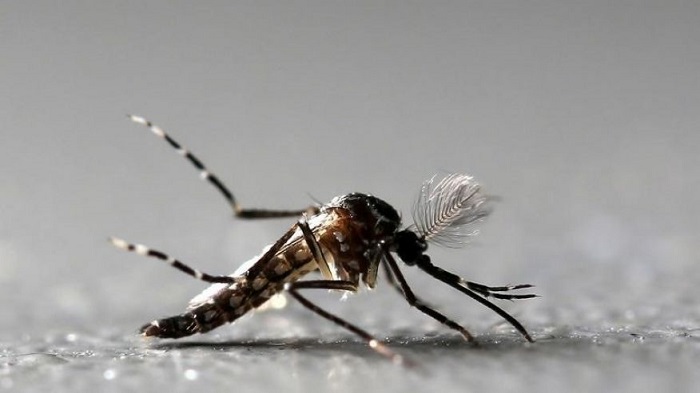And approve they did, mostly. “There were two precincts in the whole county that voted against the genetically modified mosquito,” says Phil Goodman, Chairman of the Florida Keys Mosquito Control District. And one of those was Key Haven, where Oxitec had planned to release the insects. The bill was non-binding, which means the district isn’t obligated to fulfill the mandate. But while the town voted nay, the county voted yea. As a result, Goodman says, they’re going to stick with the trial run, but the board will try to work with the FDA to find a different release site. “We’ll be looking at where mosquitoes are, and come up with some other sites of where to release them based on where people voted yes,” he says.
The FDA approved a 22 months-long experimental release period, and the board will vote on both the start date and the new township to release the mosquitos on November 19. Oxitec’s engineered insects—all male—have a gene that ties up the cell’s resources to produce an innocuous protein, effectively disrupting normal growth pattern. Any offspring sired by Oxitec’s bugs will die as larvae—before they grow wings and proboscises to transmit the Zika virus. That could be a viable supplement to spraying insecticides, which are damaging for the environment (and many bugs are immune to, anyway).
Blood Suckers
The trial isn’t without uncertainties. Some officials question how effective the Oxitec field study would be in the long and the short run. First, getting rid of an entire species will leave an ecological hole: If Aedes aegypti is eradicated, another species—Aedes albopictus (the Asian tiger mosquito)—could move in. “We’ve seen elsewhere where there is distribution of these two species that when there’s a vacant niche Aedes albopictus will move in, and it’s a competent vector of the same viruses,” says Phil Lounibos, an entomologist who studies mosquito-human disease transmission at the University of Florida (Oxitec is also working on creating a genetically modified Asian tiger mosquito).
And in order to completely contain Zika, Oxitec’s mosquitos need to be sex-crazed enough to deaden the gene pool. According to Oxitec, of the engineered mosquitoes to be released, .03 percent will be females—it’s pretty hard to separate out millions of mosquitos by sex. So, in theory, some of these GMs could bite someone (only females are blood-suckers). But they’re not going to be carrying Zika. Furthermore, in the lab, 4 percent of GM mosquito offspring ended up reaching adulthood instead of dying off young. So Oxitec isn’t a sure way to completely eradicating the buggers.
Contingencies aside, the Florida Keys are about a nearly perfect place to experiment with genetic solutions to Zika. For one, the modified species will be isolated to an island. “As soon as the experiment is over, it’s up to Florida Keys and their commissioners whether they want to implement this on a larger scale,” says Lounibos. If they do, they shouldn’t wait too long: Any waiting period after the end of the experiment opens the area to remigration of Aedes aegypti from the Caribbean or mainland Florida.
And if the GM mosquito experiment fails, that doesn’t necessarily mean the US’s war on Zika will be waged in a fog of pesticides. Scientists have other biological tactics. Injecting Wolbachia bacterium into females makes mosquitoes incapable of transmitting diseases, like dengue, chikungunya, and Zika. Same for their offspring. So, as each generation lays more Wolbachia-infected eggs, the number of viral-carrying mosquitos decreases. These gets around the ecological niche problem—where Asian tiger mosquitos move in once the Aedes aegypti are gone—says Lounibos.
And the superbugs are just another tool to combat Zika. “The ultimate goal of the trial is to prove what we say we can do, which is reduce the population significantly,” says Oxitec CEO Hadyn Parry. “We would expect to reduce the population by about 90%, because that’s what we’ve done in all other trials.” Though it isn’t a sure win. Even if Key Haven residents had approved, the trial would have taken place in a small area—perhaps too small of a base to make inferences on the future impact of GMOs and human health. But all that hinges on whether the board elects a new township for the super-mosquito release, and doesn’t let the whole ordeal buzz off.
More about:
















































